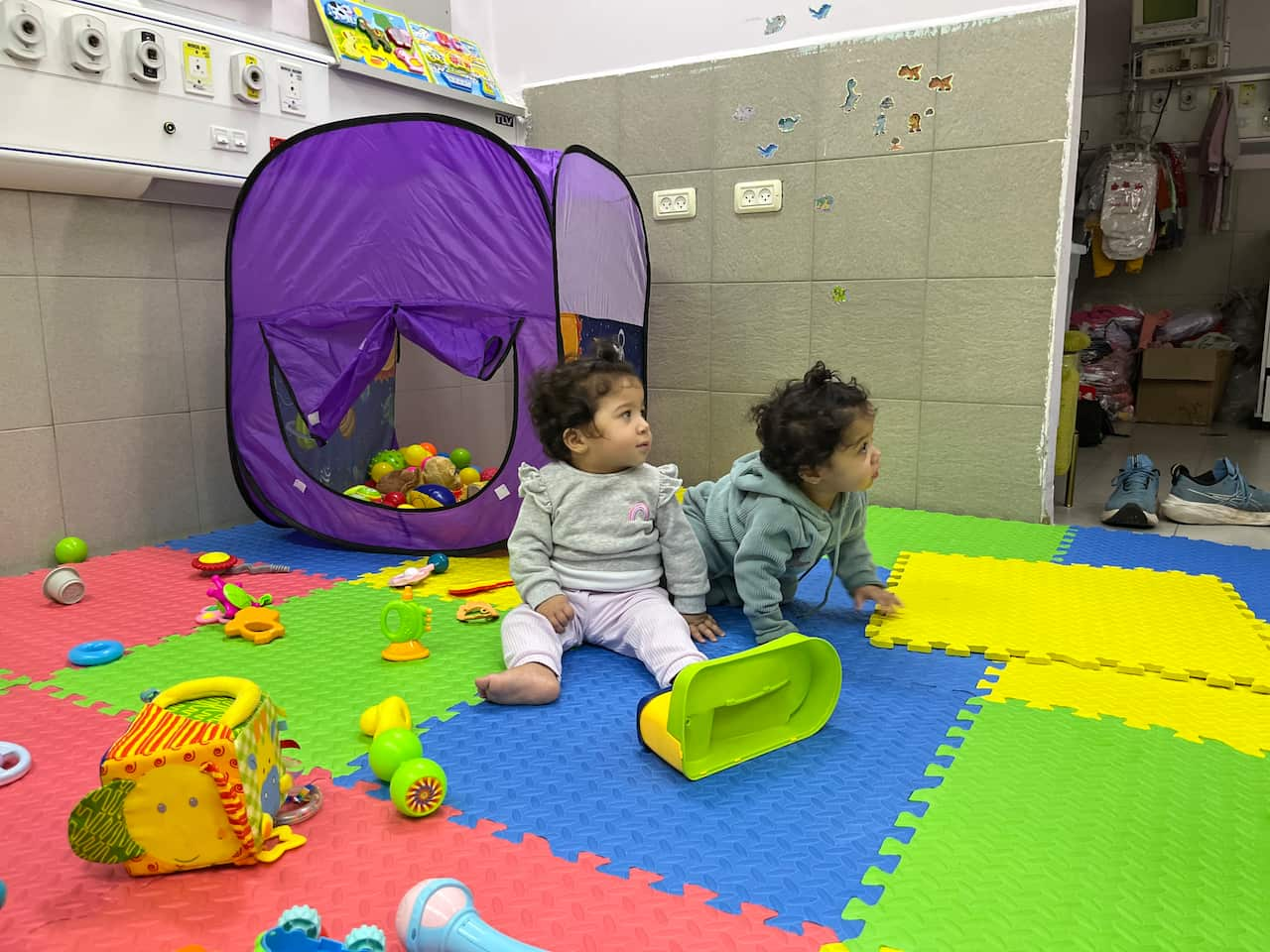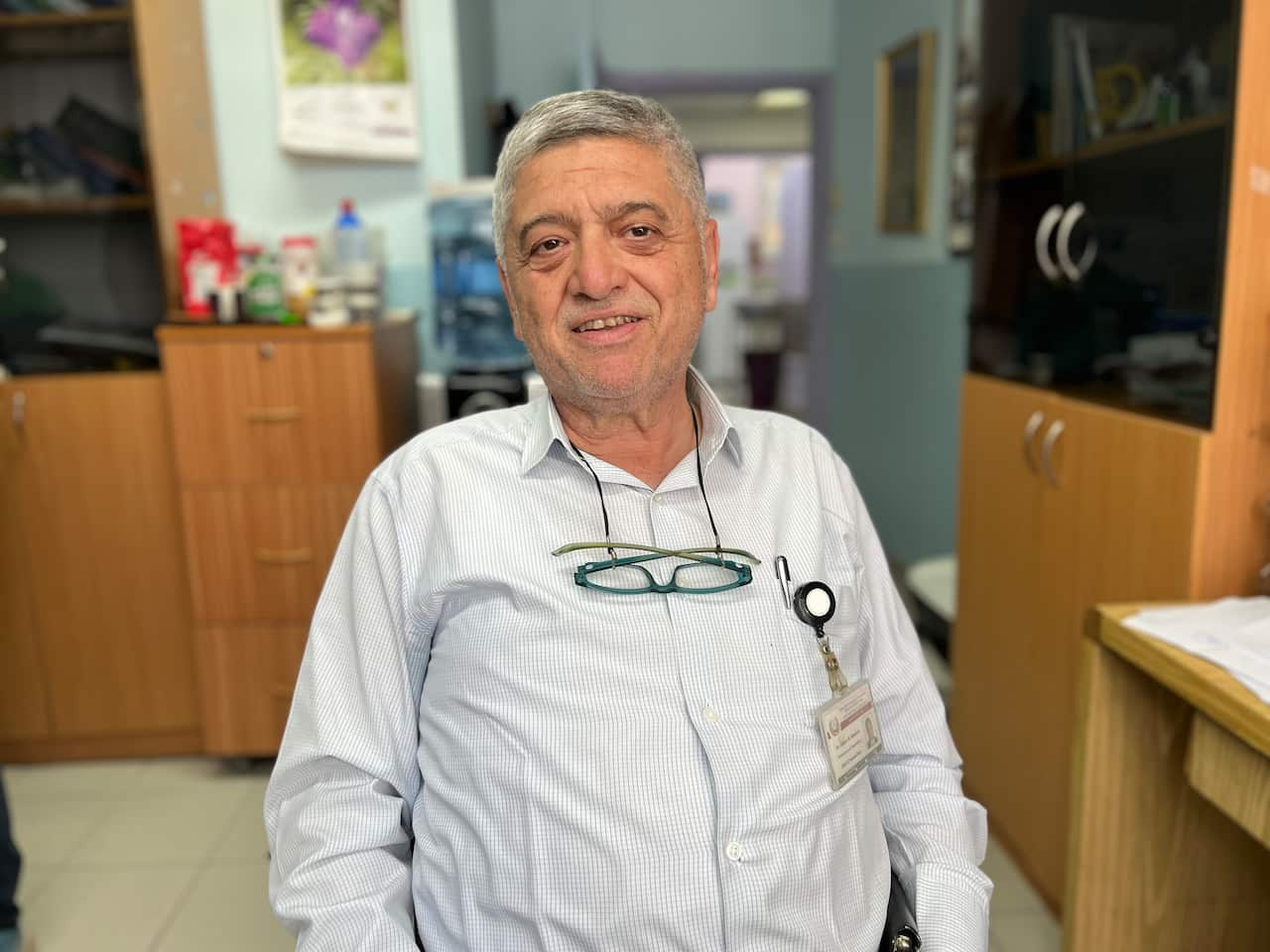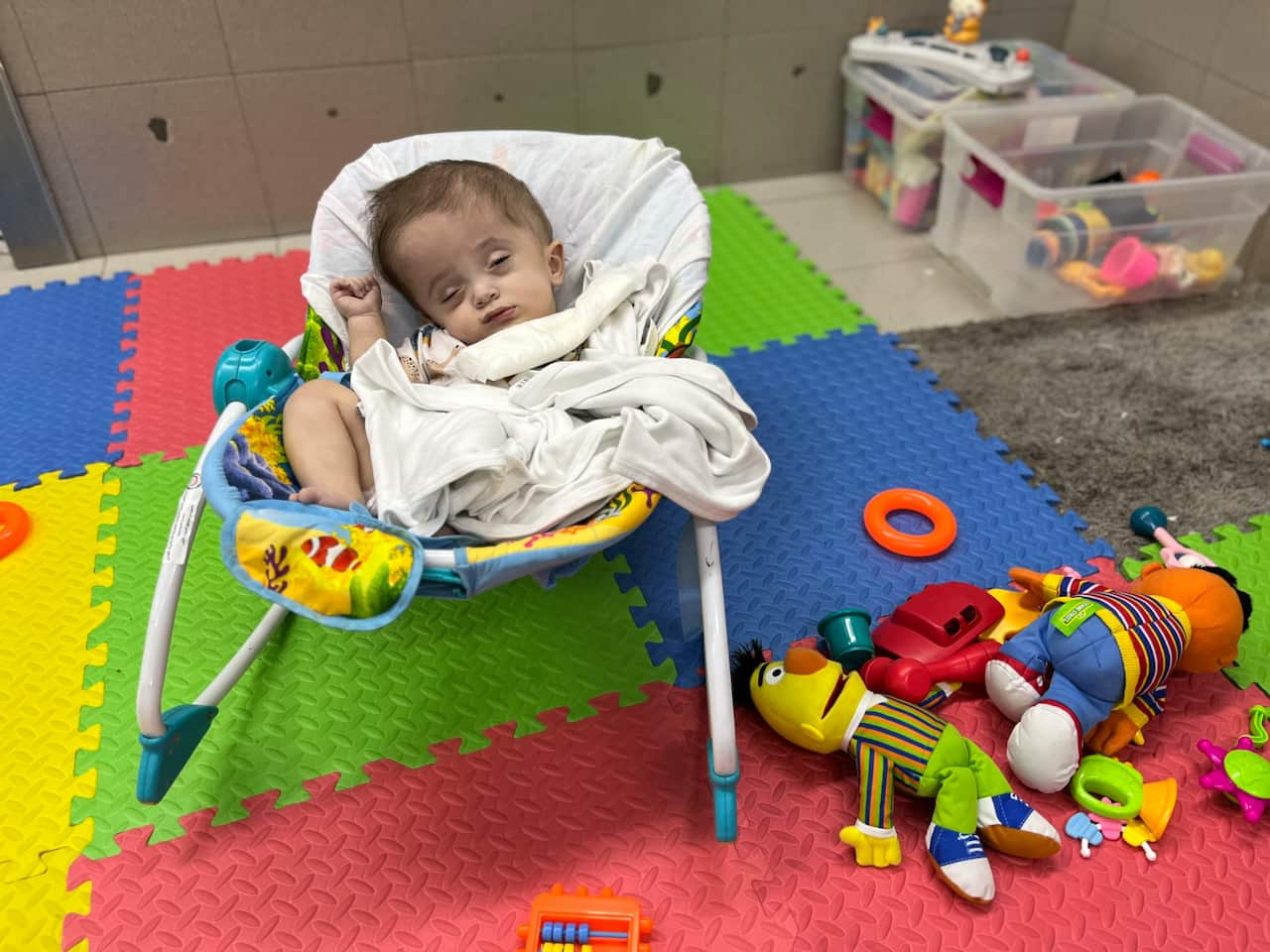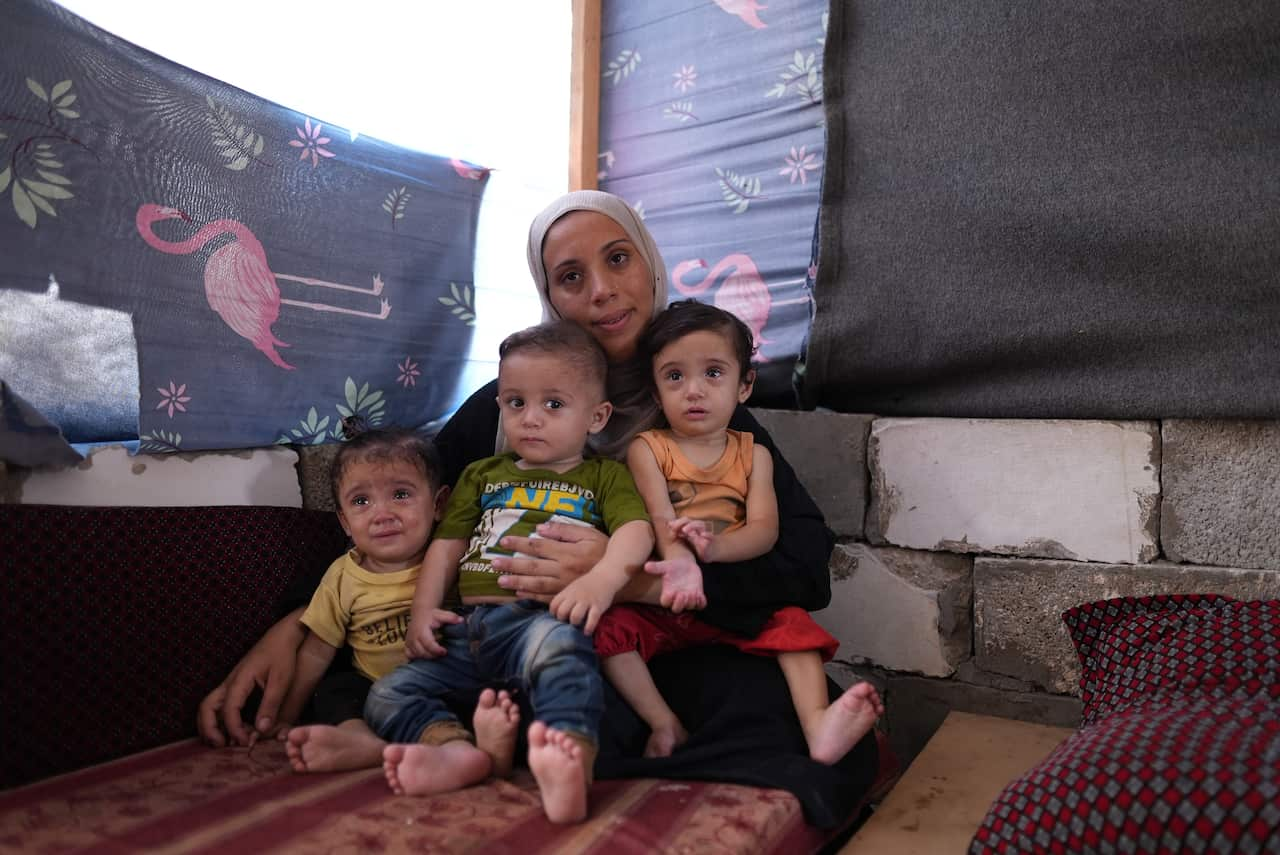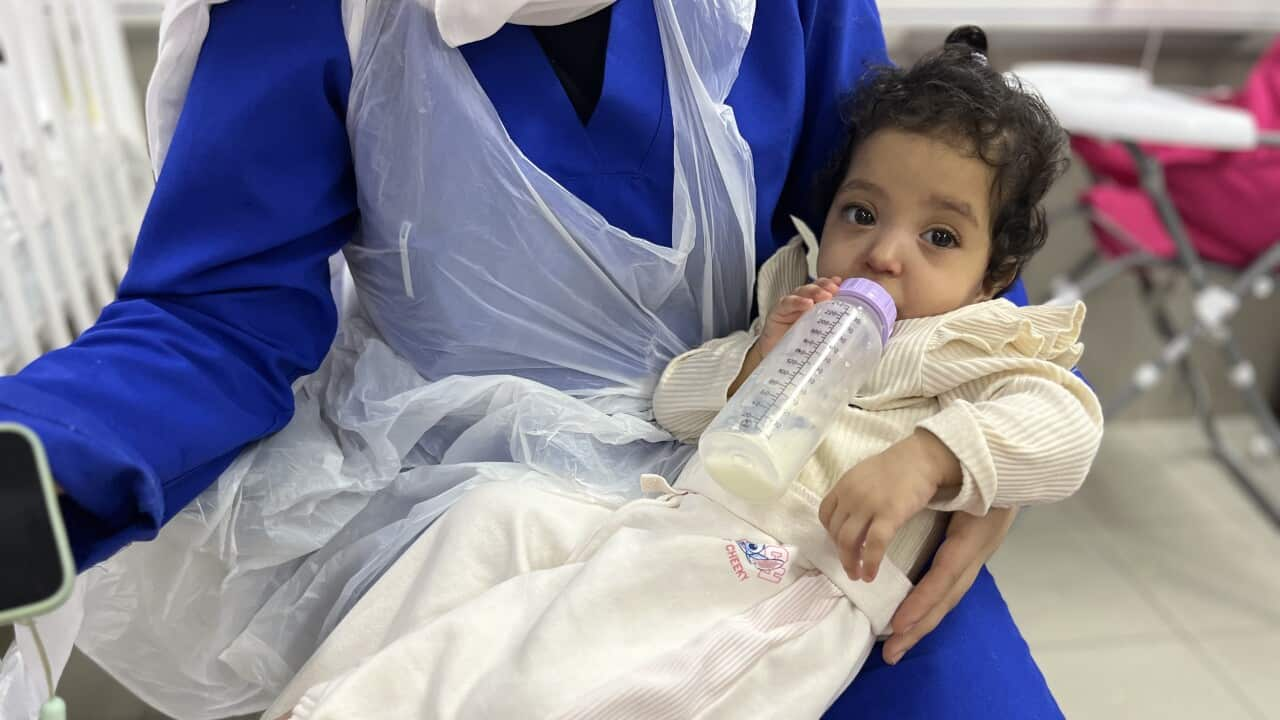For five small Palestinian children, the only home they have known is the neonatal unit of East Jerusalem’s Makassed Hospital.
Anas al-Mokannen, Saeda Idris, and triplets Nijmeh, Najwa and Nour al-Byook have all recently turned one.
They were born prematurely to women from Gaza in the weeks leading up to October 7 last year, when Hamas militants attacked southern Israel and Israel launched a now more than assault on Gaza in response.
Despite the challenges these five children have already faced in their short lives, doctors say all are making good progress. Source: SBS News / Claudia Farhart
The hospital discharged the mothers, but the children had to remain in the neonatal intensive care unit.
“Two of them were ready for discharge, actually, so we started coordinating for the mother to come in and take the baby home with her to Gaza, but her permit was delayed,” Dr Hatem Khamash told SBS News.
“And then, on the seventh of October, the war started and nothing could be done.”
Since then, only some foreign nationals and medical evacuees have been allowed to leave Gaza, with all other permits allowing travel into Israel cancelled.
Khamash and his team at Makassed’s neonatal unit have been caring for the children ever since.
“We are following them medically and socially. With all the staff caring for them and loving them, luckily they’re doing much better, and we’re happy with their development despite them being premature,” he says.
“Premature babies are at risk of developmental problems. And being separated from their families, for any normal kid, is a big problem emotionally.”
Dr Hatem Khamash and his team at Makassed’s neonatal unit have been caring for the children. Source: SBS News / Claudia Farhart
SBS News spent one morning with these five children.
In Gaza, the closest their mothers can get to them is through a phone.
‘He cannot bear the life we are living’
One of the children’s mothers, Nedaa abo Barka, spoke to SBS News from the southern Gaza city of Khan Younis.
Her son Anas was one of quadruplets; she was able to bring the three other babies home before the war began, but with complications from birth, Anas needed to stay longer.
“After two weeks, they told me he had a mild haemorrhage, which goes away on its own after a while,” Nedaa says.
“Then they said it had become a severe haemorrhage. After a while, because of the amount of bleeding he had, there was water in his head. And after that, he got a virus, and they put him in an isolation room by himself.”
In Gaza, the closest the children’s mothers can get to them is through a phone. Source: SBS News / Claudia Farhart
In the year since, Nedaa and her husband, along with their three other babies and two older children, have been displaced multiple times.
The family fled Khan Younis when Israel’s ground offensive reached the city.
They returned months later to find their house had been destroyed.
After a short time staying with family, they built a tent shelter on the rubble of their home, and the seven of them have been living there ever since.
“We’re afraid of the insects, rodents, mice, mosquitoes. The children are always bitten by bugs at night. Many of the children’s clothes have been eaten by rodents,” Nedaa says.
Nedaa and her children in Gaza. Source: Supplied
“We live in very difficult conditions. There are no medications. My daughter is sick, and there’s no treatment. The children’s basic needs such as nappies are not available, and I cannot even provide milk for the children.”
Social workers at the hospital update Nedaa regularly on Anas’ progress, and make video calls when Gaza’s struggling phone networks allow her to see her son.
She says some aid groups have offered to help arrange for Anas to be transferred to Gaza for ongoing treatment.
But as much as she wants to be reunited with her child, she knows a warzone is no place for him.
“I want to hold him. I want to, like any mother, put him in my arms. I cry a lot,” she says.
“Anas needs special milk, he needs special everything. I want to take care of everything, but he cannot bear the life we are living at all.”
Waiting the war out
At Makassed Hospital, Anas has access to around-the-clock medical care and a safety from war his siblings do not yet know.
Khamash says the hospital is working with aid groups to try to bring the mothers back to Jerusalem to visit their children.
But he is reluctant to discharge them to Gaza.
“The moment the war ends, we can send them home to their mothers. Before that, it is very difficult,” he says.
“There is no clean water, no nutrition, no medics for the babies, no food for the babies. If they get sick, they will die.”
Despite the challenges these five children have already faced in their short lives, doctors say all are making good progress.
“These are Gazan people. They are usually strong — stronger than any other Palestinians,” Khamash says.
“Even their babies.”
